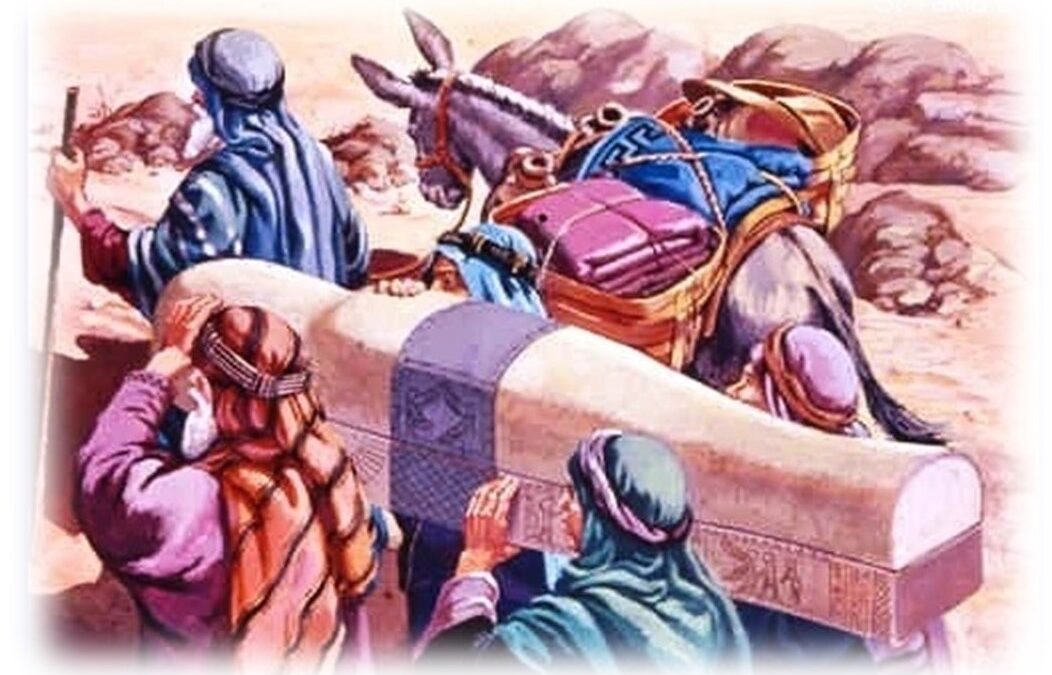KJV Exodus 13:19 And Moses took the bones of Joseph with him for he (Joseph) had straitly sworn the children of Israel saying, “God will surely visit you and ye shall carry up my bones away hence with you.”
NASB Exodus 13:19 Moses took the bones of Joseph with him, for he had made the sons of Israel solemnly swear, saying, “God will surely take care of you, and you shall carry my bones from here with you.”
The story of the Exodus is both thrilling to consider and instructive to study. Among the many threads of truth woven throughout the story of the redemption of the nation is the single verse cited above concerning the bones of Joseph. There are actually four mentions of his bones throughout Scripture, each emphasizing a different principle.
God’s Faithfulness
As Joseph was on his deathbed, he promised the people of God, through his brothers, that God would visit them and bring them out of Egypt. Joseph had learned the faithfulness of God through all the circumstances of his own life. Now, he communicated that to coming generations (Gen 50:25).
The Fulfillment
The story of the Exodus brings us to the fulfillment of that promise. Joseph’s faith in God was not in vain. God did visit and redeem his people. Moses, remembering Joseph’s request, carried his bones up out of Egypt.
The Testimony to Divine Fidelity
When Joshua had conquered part of Canaan, and as his charge was about to end, he buried the bones of Joseph in Canaan (Josh 24:32). Here was an eloquent testimony to the God Who not only brought them out but brought them into their inheritance.
An Illustration of Faith
The final mention of Joseph’s bones is in Hebrews 11 and is employed as an illustration of faith in God’s promise about the land. This would have great relevance to the Hebrew believers who were being called back to Judaism. They were not to draw back in unbelief of God’s promise as their ancestors had done (Heb 3, 4), forfeiting the land. God had made promises now as part of a New Covenant, and they could depend on the promises that God was now making in a new dispensation (Heb 9:15; 10:36).
We are told that Joseph was buried in a coffin in Egypt (Gen 50:26). It is noteworthy that the word for “coffin” is actually “ark,” the very same word used for the ark of the covenant. Israel carried two “arks” through the wilderness for forty years. It must have been a great honour to carry the ark containing the bones of the man who went before to redeem them from famine. With them, day by day, was the memorial of his death. It was not only an honour but must have created harmony among the men who carried the ark as they had to move in step and unison with one another.

There must have been times when they would reflect upon the ill-treatment their forefathers had meted out upon Joseph. This would have led to a deep humility as they recognized the plague of their own hearts, leading to a greater holiness of life. But the ark would also have given them hope – God had been true to His Word in bringing them out. He would be equally true to His Word in bringing them in. They could depend upon Him.
As we remember the death of our Redeemer, we should consider it an honour. It should result in harmony amongst us, produce humility and holiness, and reinforce our hope that it is only “til He come.”
Consider:
Carrying the ark with the bones of Joseph would have conveyed a dignity upon those so honoured. Think of the dignity conferred upon us as we obey the Lord in keeping the ordinance.
Find corresponding New Testament links which remind us that a remembrance of His death should promote humility, harmony, holiness, and hope in each of us.


Excellent thoughts on the faithfulness of God regarding the bones of Joseph. It caused me to reflect on the dry bones which in a day to come God will inspire with the breath of life. What a day that will be! (Zech. 8:8 et amplius)